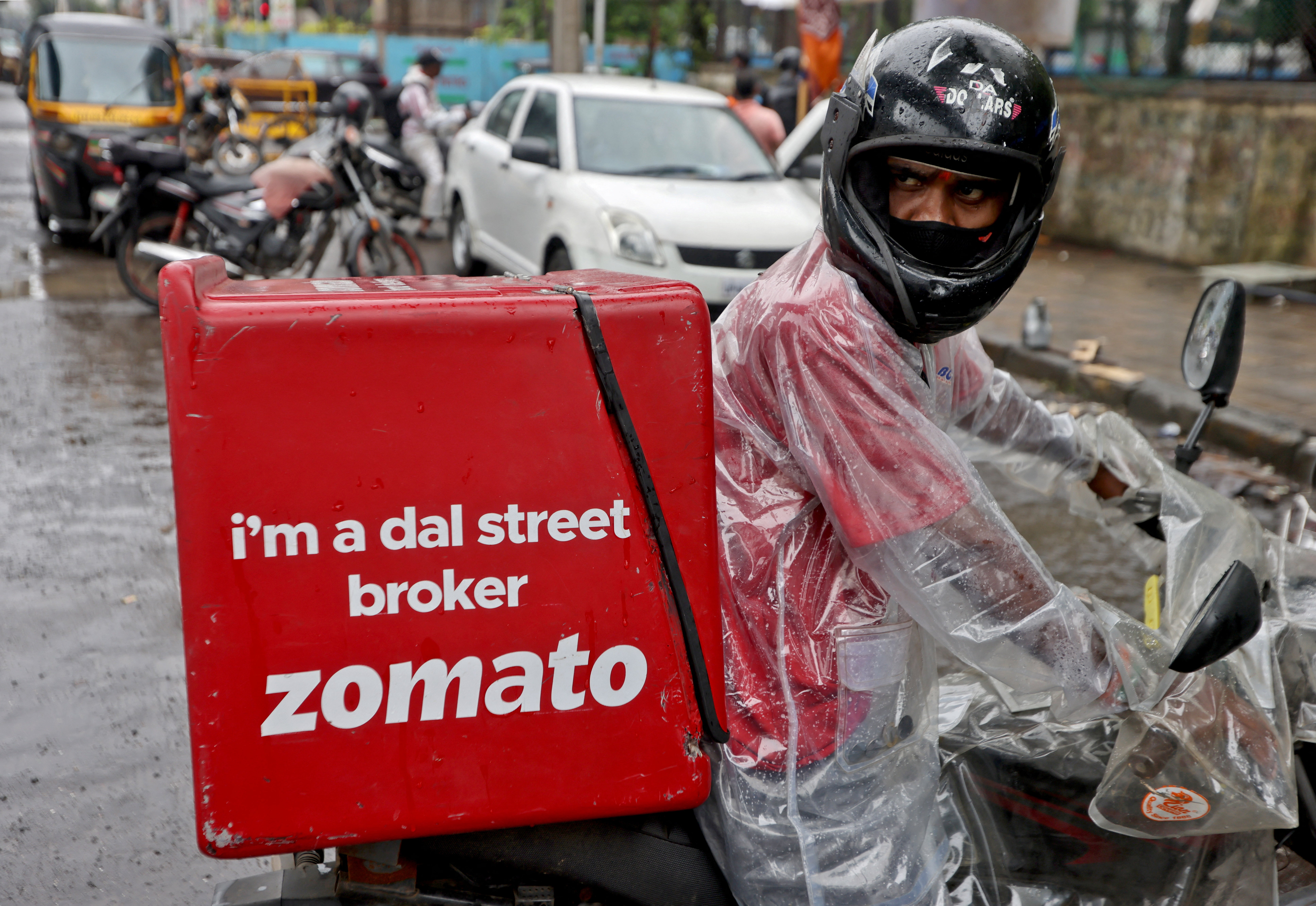Zomato’s ‘food delivery under 10 minutes’ lands it in hot soup
Rights groups urge Zomato to consider delivery agents as ‘human beings’ rather than data points

Your support helps us to tell the story
From reproductive rights to climate change to Big Tech, The Independent is on the ground when the story is developing. Whether it's investigating the financials of Elon Musk's pro-Trump PAC or producing our latest documentary, 'The A Word', which shines a light on the American women fighting for reproductive rights, we know how important it is to parse out the facts from the messaging.
At such a critical moment in US history, we need reporters on the ground. Your donation allows us to keep sending journalists to speak to both sides of the story.
The Independent is trusted by Americans across the entire political spectrum. And unlike many other quality news outlets, we choose not to lock Americans out of our reporting and analysis with paywalls. We believe quality journalism should be available to everyone, paid for by those who can afford it.
Your support makes all the difference.Food delivery giant Zomato is facing a backlash in India after it announced plans to deliver meals in 10 minutes, sparking concerns over the safety of riders.
Mimicking the hugely popular applications that deliver groceries at customers’ doorstep within 10 minutes, Zomato went a step further, promising to deliver fresh, cooked food in the same time.
CEO of Zomato Deepinder Goyal said in a statement that they were feeling the 30-minute average delivery time for food was “too slow” and feared soon becoming “obsolete” before doing what “nobody in the world” has done.
“Innovating and leading from the front is the only way to survive (and therefore thrive) in the tech industry. And here we are… with our 10-minute food delivery offering – Zomato Instant,” Mr Goyal said.
But the idea seems to have failed to impress a vast majority of people of the second most populated country despite a big appetite for such services. It was called out as “ridiculous” and “death trap” for delivery partners.
A research scientist who went by his first name — Kushal — on Twitter said it was a “heinous model” that would have repercussions for workers already devoid of basic employee rights.
“The 10-minute delivery model by Zepto, is emulated by Swiggy, Blinkit. And now Zomato. These companies refuse to acknowledge their delivery providers as employees, and hence you see words like ‘drivers’, ‘captains’ and ‘riders’ being used for them,” he said.
Zomato’s fast-delivery also found a mention in Indian parliament after it was taken up by lawmaker Karti P Chidambaram during the zero hour.
Mr Chidambram demanded guidelines to regulate delivery companies to protect delivery agents from unrealistic targets and ensure their safety.
“This is absurd! It’s going to put undue pressure on the delivery personnel, who are not employees and who have no benefits or security, who have no bargaining power with Zomato," he said.
He said India has 15 million workers in the gig economy, where workers do not have permanent employment.
Zomato’s CEO, however, attempted to counter the criticism, and said in a blog post that they “do not put any pressure on delivery partners to deliver food faster”.
“Nor do we penalise delivery partners for late deliveries. The delivery partners are not informed of the promised time of delivery. Time optimisation does not happen on the road, and does not put any lives at risk,” he said.
The company has promised the highest quality of fresh food and hygiene while promising the safety of delivery agents -- all at the same time -- relying on “sophisticated algorithms” and future-ready in-station robotics.
The Indian Federation of App-based Transport Workers (IFAT) accused Zomato of forgetting that “workers are not machines”, reported News Minute.
Shaik Salauddin, national general secretary of IFAT, said the companies are luring customers with the “fantasy of instant delivery” but urged Zomato to look at their delivery workers as “human beings who are more than data points for the algorithm to manage”.
“It is incentive driven work conditions that these platforms actively shape which incites the delivery workers to chase those incentives targets that motivate delivery workers to resort to such acts,” he said.
He said the workers lack proper access to washroom facilities, resting areas, charging stations, and wifi and they are often penalised for spillage issues, not buying the no penalisation promise of the company.
A larger number of delivery start-ups are mushrooming, owing to their huge popularity and more young people are taking up jobs as delivery agents due to a slump in the job market further induced by the Covid pandemic.
Most roads in the country are riddled with potholes and remain crowded with unruly traffic with motorists violating traffic rules.
According to the World Bank, India records a death every four minutes on its roads and crashes kill around 150,000 people each year.
The promise of delivery with lightning speed, however, was fodder to hundreds of jokes and memes on Twitter.
Join our commenting forum
Join thought-provoking conversations, follow other Independent readers and see their replies
Comments